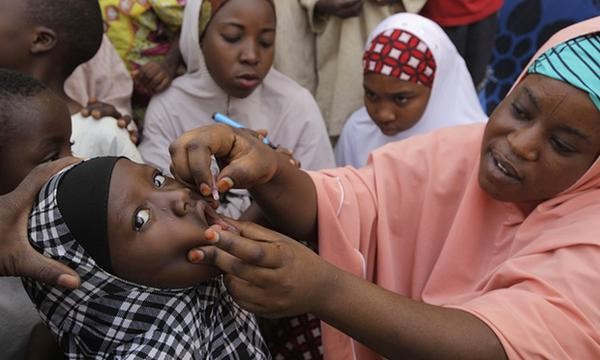Speeches Shim

For the first time in its history, Nigeria is able to declare itself to be certified as free of the wild polio virus, according to a June 18, 2020 statement from the Africa Regional Certification Commission, an independent body mandated to certify the Africa region to have eradicated poliovirus.
An official announcement regarding this “milestone moment” is expected at a planned Health Ministers’ meeting later in July, Tolu Ogunlesi, special assistant to Nigerian President Muhammadu Buhari recently tweeted.
“An amazing moment in our history,” commented Dr. Faisal Shuaib, Executive Director of the National Primary Health Care Development Agency, one of the lead organizations in the effort. “The Nigeria team led by NPHCA and partners demonstrated evidence of our polio-free status.”
USAID/Nigeria Mission Director Stephen M. Haykin agreed the certification is “a significant milestone in the efforts to improve the health and well-being of the Nigerian people and ultimately, the whole world.”
USAID has been among Nigeria’s key partners in the fight to eradicate polio since 1988, when the 41st World Health Assembly declared the lofty goal of eradication of poliomyelitis by the year 2000 through support to national health infrastructure systems and immunization.
After providing initial support through Rotary International, USAID began earmarking funds for polio eradication in 1997. By 2014, it appeared Nigeria, the last nation on the African continent grappling with polio, was on the way to meeting the minimum requirement of three years without any documented cases of polio, but in 2016 three cases reported in Borno, the state most impacted by the Boko Haram insurgency, set the effort back.
In response, the Nigerian government declared a state of emergency and together with partners, they came up with a robust eradication plan that targeted vaccinations to children and vulnerable populations across the country and enhanced surveillance efforts.
U.S. support, which also included efforts from the Centers for Disease Control, provided support through technical leadership, facility-based surveillance, and laboratory expansion, and community surveillance and community mobilization.
Once Africa is certified as free of the wild poliovirus, five of the World Health Organization’s six regions will be free of wild polio, which now remains endemic only in Afghanistan and Pakistan.

Comment
Make a general inquiry or suggest an improvement.